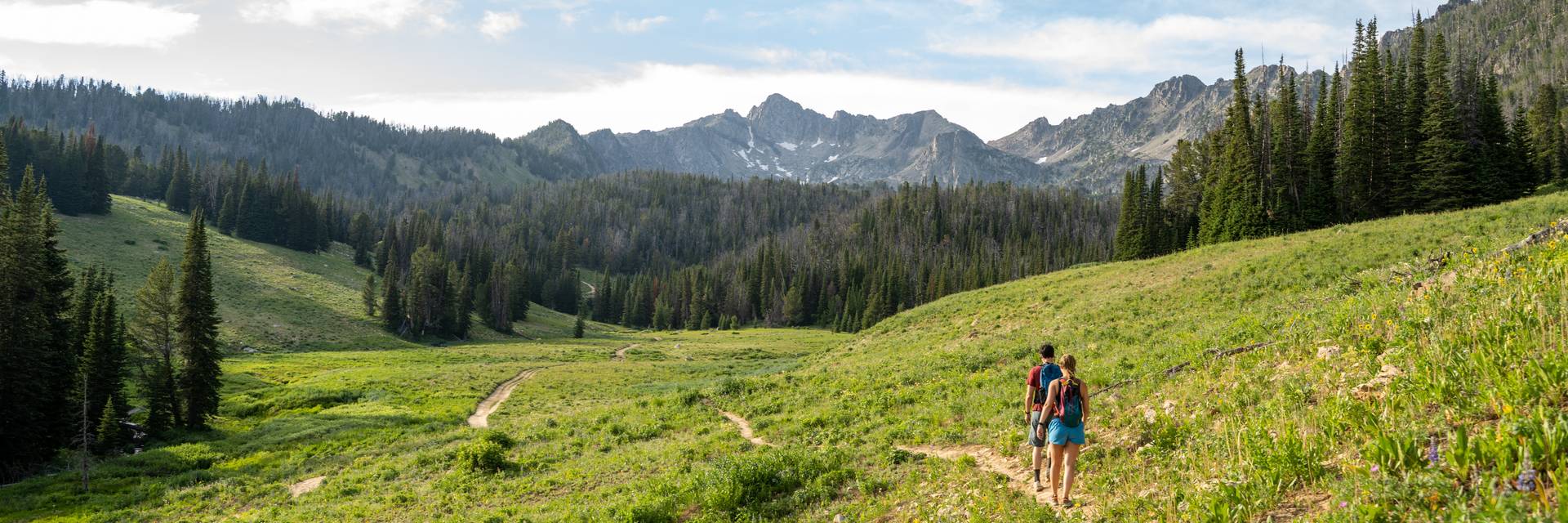
Best Hikes in Big Sky, Montana
Mountains are a big part of what Big Sky is all about. That goes for both winter when the skiing is world-class and in the warmer months when hiking becomes a must-do activity. Exploring the resort and its surroundings by foot is a great way to get immersed in Montana’s wild landscapes. To start, we’ve called out some of the top trails to hit in the Big Sky area.
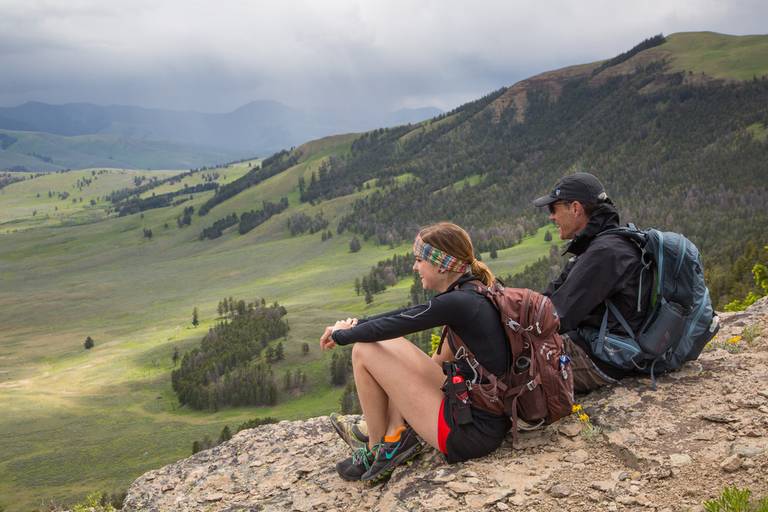
Hiking Best Practices
Before taking your trek on the local beaten paths, there are some tips, procedures, and guidelines with which it is good to acquaint yourself. These include:
- Carry water: Big Sky’s elevation is 7,500 feet and that’s at the bottom of the mountain. The further you are above sea level means the less moisture and oxygen (the O in H2O) there is in the air — both of which mean you need to drink more water to stay hydrated. Plus, you have to drink even more if you are being active, so always bring more fluids than you think you’ll need.
- Be Bear Ready: It can be exciting to see the grizzly and black bears that inhabit the greater Big Sky area, and it is important to be prepared – for your safety and the bear’s. That means viewing wildlife from a distance, making noise to alert animals to your presence, and always carrying bear spray, a high-powered pepper spray used to deter aggressive or charging bears. Be sure to acquaint yourself with the product (you spray it at the bear not on yourself) by reading the instructions and watching how-to videos before going on your hike.
- Leave No Trace: Montana is often called the Last Best Place because of its large swaths of unspoiled wilderness. Keep it that way by packing out what you pack in. This includes leftover food that could be eaten by wild animals which makes them habituated to people and spells danger for humans and animals alike.
- Bring an extra layer: As the saying goes, if you don’t like the weather in Montana, just wait 15 minutes. Even on warm days, the further you get up in the mountains the cooler it will get so always bring a fleece, sweatshirt, or long-sleeve top just in case. Even if it doesn’t get chilly it can double as added sun protection.
- Wear/bring sun protection: You might think it is the big wide open sky in Montana that makes a sunburn more likely but it is actually because the higher you go above sea level, there is less atmosphere to dissipate the ultraviolet intensity of the sun’s rays. That’s why hats, sunscreen, and/or clothing with SPF built-in are a must.
- Do not pick or lay/sit in wildflowers: Just like the local wildlife, it’s great to see wildflowers on the trail. And just like the fauna, you should leave the flora alone — not only so that other hikers can enjoy nature’s flower show, but also because it is an integral part of the Rocky Mountain ecosystem.
Guided Hikes
First time in bear country? Don’t want to hike alone? Want to understand what you are seeing? For trails on resort property, Big Sky offers guided hikes through Basecamp. These 2 hours trips pair you with a knowledgeable guide who will help groups of 8 or fewer people pick the trail that best matches their interests and activity level. This is a great way to learn more about the local natural ecosystem and become comfortable with the equipment, tactics, and etiquette of hiking in the Rocky Mountains.
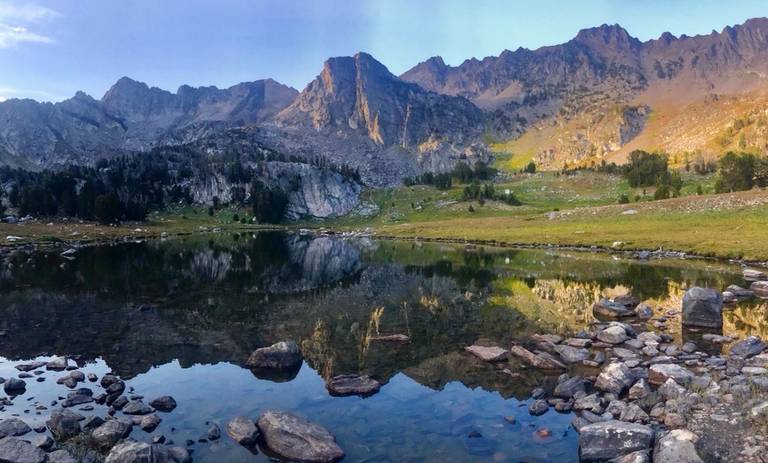
Beehive Basin
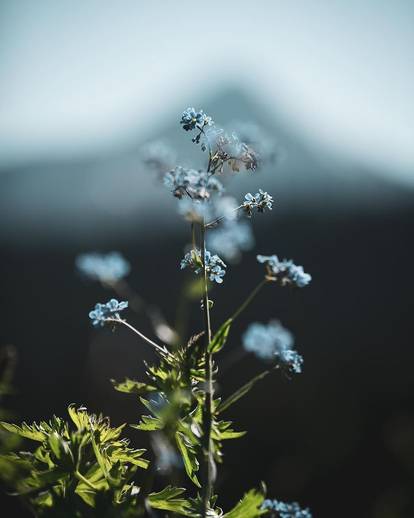
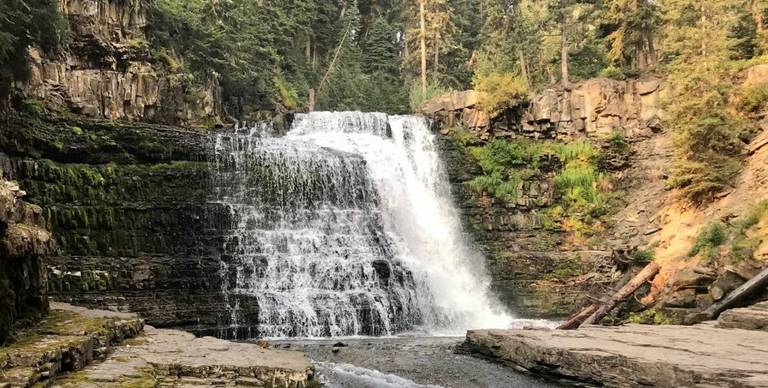
Ousel Falls
Top Hikes
Huckleberry at Big Sky Resort: Adventure awaits right outside your door with this hike situated on resort property. The excitement can start with a ride up the Explorer lift, which will give you a scenic bird’s eye view of the resort as well as the forest and meadows you’ll be walking through on the 1.5-mile trip down. You can make the hike a little more taxing by foregoing the ride up and making it a 3-mile out-and-back trek. While the trail affords you great views of Lone Peak, no matter when you do it, if you want to see the wildflowers in bloom, then pencil this one into your calendar for July.
Ousel Falls: Located just outside Big Sky’s Town Center and only featuring about 250 feet in elevation gain over 1.6 miles, the path to Ousel Falls is an activity that the whole family can take part in. The trail borders two forks of the Gallatin River and is graded to make it easy for folks of all ages — plus, it is also accessible for strollers and wheelchairs. Located in a tree-shaded canyon with the 100-foot waterfall that gives this trail its name at the end, this is a great trek to do on a hot summer day. Do it around lunchtime and take advantage of the picnic areas along the route.
Beehive Basin: Looking to test your limits? This 7.1-mile trail gains 1,650 in elevation, takes you through a National Forest and provides magnificent views of Lone Peak and the surrounding mountains. Around 3 miles from the trailhead, you’ll pass a stunning lake that makes for a great high-alpine photo-op. Depending on your timing, this can be a great place to spot wildlife or wildflowers, but there’s usually a lot of snow up here, so it’s best to wait till mid-July or August so that it’s gone when you’re trekking through.
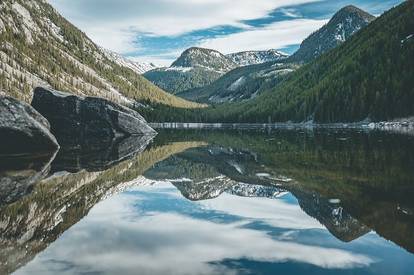
Lava Lake
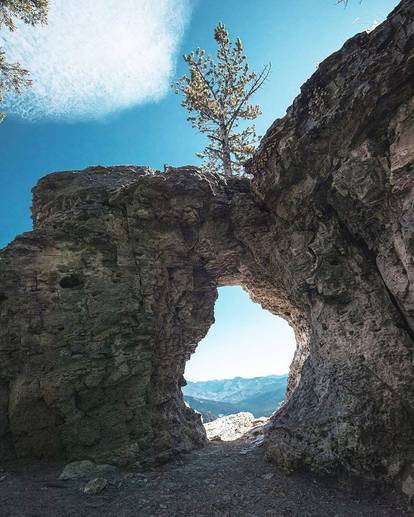
Storm Castle
Bonus Hikes
Lava Lake: This 6-mile out-and-back located 21 miles from Big Sky on Highway 191 climbs 1,620 feet pretty steadily along a creek until you reach the top. It’s worth the moderate effort as the trail ends at a beautiful alpine lake. While most of the way up, hikers are secluded in a canyon, the trail opens up around the 3-mile mark to offer stunning views of the Spanish Peaks. Fishermen might want to tote their rods as rainbow trout are plentiful in the lake. If you’re doing this one, get there early because the parking lots fill up quickly.
Storm Castle: Situated off a turn-off that can be found between mile markers 66 and 65 on Highway 191, Storm Castle is a 5.2-mile out-and-back hike that takes its name from the rocky outcrop at the top that looks like a fortress. The switchback-heavy trail has an elevation gain of around 2,000 feet and climbs steadily through mountain meadows till you reach the 7,280-foot peak. Those who make it to the top will be rewarded with 360-degree views of the Gallatin River, pristine pine forests, and surrounding jaw-dropping mountains.
A former editor at In Style magazine, Stephen Camelio is a freelance writer living in Bozeman. He wrote the Montana-set film Mending the Line, which was the number-one film on Netflix in March 2024. After many years of living in and around Yellowstone National Park, Stephen now lives in Bozeman, Montana.
More to Explore
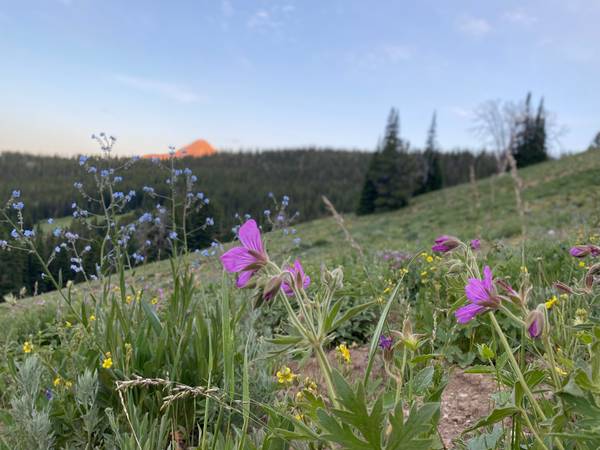
Beehive Basin: The Crown Jewel of Wildflowers
There's nothing quite like the array of wildflowers that paint the high country in brilliant colors from June through August
Read More







